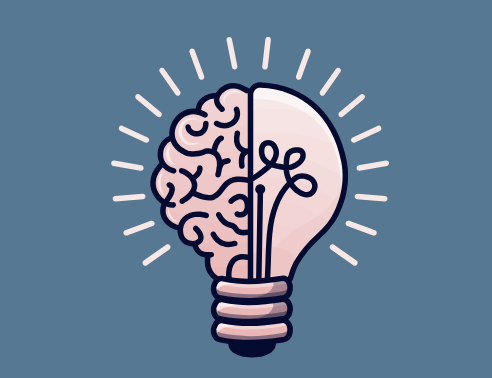EQ versus IQ: Which Should You Leverage When?
To success in life, the debate around EQ versus IQ: Which should you leverage when? has sparked countless discussions.
Both play essential roles in shaping how we think, behave, and achieve our goals, but understanding the difference and knowing when to lean on each can unlock your true potential.
Let’s dive into this topic with simple language, relatable examples, and practical advice that anyone can follow.
What Are EQ and IQ?
To understand EQ versus IQ, let’s break them down:
- IQ (Intelligence Quotient):
IQ measures your cognitive abilities, like logical reasoning, problem-solving, and understanding complex ideas. Think of it as your brain’s horsepower. It’s often associated with academics, careers in science, and analytical thinking. - EQ (Emotional Quotient):
EQ is your ability to understand, manage, and influence emotions—both your own and others’. It’s about empathy, communication, and emotional awareness. EQ is crucial for teamwork, leadership, and building meaningful relationships.
In simple terms:
- IQ = Knowledge and Logic.
- EQ = Emotions and Relationships.
The Key Differences Between IQ and EQ
| Feature | IQ (Intelligence Quotient) | EQ (Emotional Quotient) |
|---|---|---|
| Definition | Cognitive abilities like reasoning and memory. | Emotional understanding and management. |
| Focus | Solving problems and logical thinking. | Managing emotions and social interactions. |
| Strengths | Analytical skills, academic success. | Empathy, communication, leadership. |
| Weaknesses | Difficulty handling emotions or social conflicts. | Limited impact in purely technical tasks. |
| Best For | Science, research, and technical jobs. | Leadership, teamwork, and personal growth. |
EQ Versus IQ: When to Use Each?
Both EQ and IQ are valuable, but the key lies in knowing when to leverage them.
When to Rely on IQ
- Solving Complex Problems:
When faced with mathematical equations, technical tasks, or analyzing data, IQ is your go-to tool.
Example: A scientist needs IQ to create a formula or conduct research. - Academic Success:
High School Students IQ often correlates with doing well in school and excelling in tests.
Example: Preparing for a competitive exam like the SAT or GRE. - Learning New Skills Quickly:
IQ helps when you need to absorb and apply knowledge in areas like coding, engineering, or medical studies.
When to Leverage EQ
- Managing Relationships:
EQ helps you connect with others, understand their emotions, and resolve conflicts.
Example: A manager using empathy to motivate a struggling employee. - Leading Teams:
Leadership is about inspiring and guiding others, which requires a strong EQ.
Example: A coach encouraging teamwork and trust in their players. - Making Decisions Under Stress:
EQ allows you to stay calm and think clearly in emotionally charged situations.
Example: Mediating a heated family argument with compassion and patience.
Why EQ Matters More Than Ever Today
While IQ has traditionally been the focus of education and hiring, EQ is increasingly recognized as a crucial skill in today’s world. Here’s why:

- Workplaces Value Teamwork:
Employers prioritize individuals who can collaborate, communicate, and adapt to diverse teams. - Technology Can’t Replace EQ:
Machines may solve problems with logic, but emotional intelligence is uniquely human. - Stronger Relationships = Success:
Personal and professional success often depends on building trust and understanding with others.
How to Improve Your EQ and IQ
Tips to Boost IQ
- Read Regularly: Expand your knowledge by reading books, articles, or blogs.
- Challenge Your Brain: Solve puzzles, play chess, or learn a new skill.
- Stay Curious: Ask questions and explore new topics to sharpen your thinking.
Tips to Develop EQ
- Practice Empathy: Try to understand things from another person’s perspective.
- Improve Communication: Listen actively and express yourself clearly.
- Learn Emotional Regulation: Take deep breaths or meditate to manage stress.
- Reflect on Your Emotions: Journaling can help you understand and process feelings.
Common Mistakes to Avoid
With IQ:
- Relying solely on logic without considering emotions can make you seem cold or unapproachable.
- Overestimating IQ as the sole determinant of success can lead to frustration in social or emotional contexts.
With EQ:
- Focusing too much on emotions without applying logic can result in poor decision-making.
- Over-empathizing can lead to emotional exhaustion or manipulation by others.
The Perfect Balance: Leveraging Both EQ and IQ
Instead of choosing between EQ versus IQ, strive to balance the two. Here’s how:
- Use IQ to analyze a problem and come up with logical solutions.
- Use EQ to communicate those solutions effectively and build consensus.
For example, a successful entrepreneur might use IQ to develop a business plan but rely on EQ to build a team and negotiate deals.
Conclusion: EQ versus IQ – Which Should You Leverage When?
Both EQ and IQ are essential tools for navigating life’s challenges. While IQ helps with problem-solving and learning, EQ is critical for emotional well-being and relationships.
By understanding their unique strengths and knowing when to use each, you can maximize your potential and achieve success in all areas of life.
Whether you’re a student, professional, or parent, remember this: the most successful people leverage the power of both EQ and IQ.
FAQ
What is the main difference between EQ and IQ?
IQ measures cognitive abilities like logic and problem-solving, while EQ focuses on understanding and managing emotions.
Can EQ be more important than IQ?
Yes, especially in roles involving teamwork, leadership, or communication. EQ helps build relationships and resolve conflicts.
How can I improve both EQ and IQ?
Boost IQ by reading, learning new skills, and solving puzzles. Develop EQ through empathy, communication, and emotional awareness.







